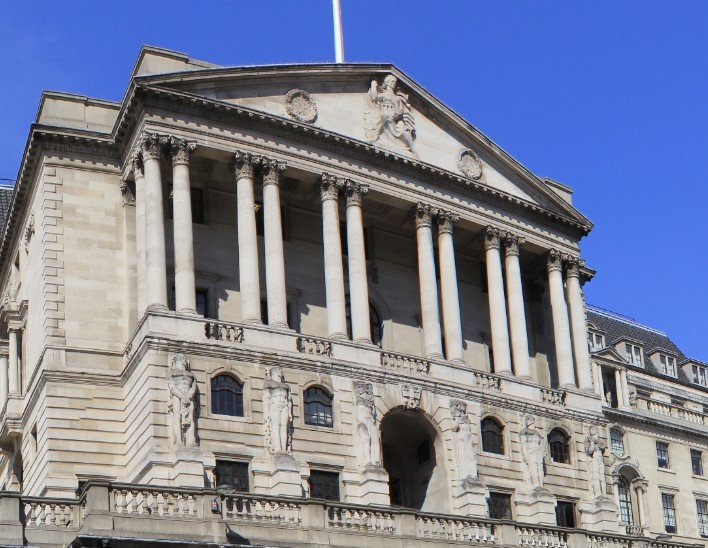Starmer’s industrial vision gets a jolt of funding as the UK bets on entrepreneurs to reboot growth
The British Business Bank is preparing to pour £6.6 billion into UK-based entrepreneurs, startups, and small firms in what could be one of the most sweeping public investment moves since the financial crisis. It’s bold. And honestly, it’s overdue.
This isn’t just a spreadsheet move. It’s politics, economics, and hope all rolled into one. The announcement comes on the heels of Labour leader Keir Starmer’s unveiling of a 10-year industrial strategy, laying out the kind of long-haul vision rarely attempted in Britain’s breakneck, election-obsessed policy cycles.
A New Mood in Whitehall
There’s a new breeze blowing through Westminster—and it’s less about tax cuts and more about patient capital.
The British Business Bank, set up after the 2008 crash to boost access to finance for smaller firms, now finds itself smack in the middle of Starmer’s economic blueprint. Officials familiar with the plans say this isn’t just an accounting line-item—it’s a fundamental shift in how the UK thinks about entrepreneurship.
“This is about rebuilding the foundations of growth,” said one senior Treasury source, speaking on background. “We can’t just keep talking about productivity and innovation and then leave founders to beg for crumbs. This is the serious money.”

Why Now? And Why This Big?
The timing isn’t random. The UK economy has been sputtering since Brexit, burdened by a cost-of-living crisis, fragile supply chains, and energy volatility. Many startups that thrived during the pandemic have stalled. Founders face steep interest rates, cautious VCs, and a tight talent market.
Yet despite all that, early-stage innovation is still bubbling. AI, biotech, green tech—these sectors are cooking up some genuinely exciting stuff. The problem? They’re still starved for early support.
Which is where the British Business Bank steps in.
According to internal documents seen by PA Media, the £6.6 billion commitment is split across direct investments, partnerships with private funds, regional growth programs, and targeted seed capital schemes aimed at underserved demographics.
More Than Just London
This isn’t just about Shoreditch, either. Officials are emphasizing regional equity—hard. Birmingham, Glasgow, Newcastle, and Belfast are all named in funding allocations, according to one official familiar with the framework.
Here’s what we know about the breakdown so far:
-
Around £1.5 billion will be earmarked for regional venture capital schemes
-
£2 billion is headed to scale-up and growth-stage startups
-
Nearly £500 million is being set aside for “inclusive entrepreneurship”—targeting women, ethnic minorities, and founders from low-income backgrounds
That last point, in particular, has caught the attention of grassroots investors.
“Frankly, the diversity stats in British startup funding are still embarrassing,” said Damaine Williams, a fintech investor and founding partner of EastEnd Innovators. “If this money gets into the hands of real founders—outside of the usual postcode lottery—it could actually shift the dial.”
Let’s Talk Numbers
To put things in perspective, here’s how the British Business Bank’s new commitment compares with similar public schemes globally:
| Country | Annual Public Startup Investment | Recent Strategic Boost |
|---|---|---|
| UK | £6.6bn over 10 years | Keir Starmer Industrial Plan |
| France | €10bn scale-up fund (Bpifrance) | La French Tech Next40 |
| Germany | €30bn Future Fund (Zukunftsfonds) | Green & AI Tech |
| USA (Federal) | $10bn SBA Small Biz Funding | CHIPS Act, IRA, AI R&D |
It’s not just about the pound amount. It’s about consistency. France and Germany have had long-term public investment banks quietly doing the heavy lifting for years. The UK, by contrast, has often yanked policy levers midstream, leaving founders with frayed nerves.
“This is the first time in a long time that we’ve seen real clarity over the long term,” said Karen McFarlane, a co-founder at BioSpring Diagnostics in Manchester. “Founders can’t plan for the next decade when policy changes every six months.”
Private Capital Will Still Need Convincing
Even with public money on the table, don’t expect the private sector to throw open the taps just yet.
“There’s still a nervousness,” said Howard Linford, managing director at Broadhead Ventures. “High interest rates, shaky valuations, weak exits—it’s a weird time for venture right now. But government showing up early sends a strong signal.”
Linford added that blended finance—where government cash de-risks private investment—is the big opportunity here. “It’s not about replacing private VC. It’s about making that first cheque a little less terrifying.”
And that brings us to the classic British bugbear: scale-ups.
For all the love lavished on garage-born startups, the UK has historically struggled to turn them into global winners. Too many get acquired early or relocate to the US once things get serious. If even a fraction of this £6.6 billion funding can support Series A and B firms, it might finally move the needle.
Entrepreneurs React
Ask founders what they need right now, and the answers aren’t as techie as you’d expect.
“Honestly? It’s childcare and rent,” said Shazia Noorani, who runs an edtech company in Bradford. “The pitch deck is ready. The problem is I can’t even think straight when my co-founder and I are both doing school runs and chasing invoice payments.”
Others echo the need for simplicity. “Don’t make me jump through 27 hoops for £20k,” said Harish Patel, a robotics founder in Birmingham. “If you trust us with big ideas, then trust us not to drown in paperwork.”
Still, there’s cautious optimism in the air.
“The ecosystem needed a jolt. And this is a big one,” said Nia Thomas, who runs a cleantech startup out of Swansea. “Let’s hope it doesn’t fizzle out once the headlines move on.”








